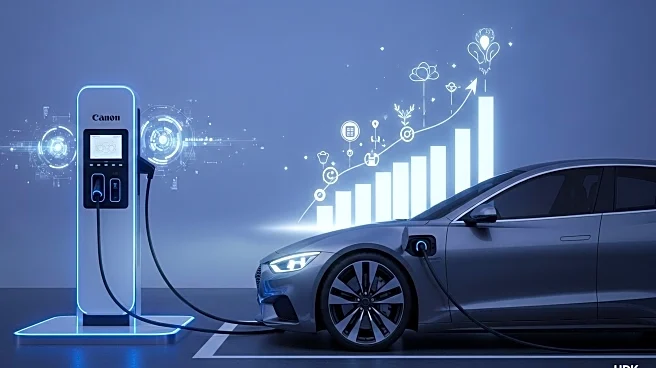What's Happening?
Tesla continues to lead the U.S. electric vehicle (EV) market, accounting for 48.5% of sales in the last quarter, despite a year-over-year sales decline. Tesla sold nearly 144,000 units, significantly outpacing Chevrolet, which ranks second. GM, the parent company of Chevrolet, has increased its market share to 15.2%, up from 10.8% in the previous quarter. Ford and Hyundai are competing closely for third place, with market shares of 5.5% and 5.3%, respectively. Premium brands like Cadillac, BMW, and Rivian follow, each with over 10,000 quarterly sales. The overall U.S. EV sales dropped by 6% in the second quarter compared to the previous year, primarily due to Tesla's decreased sales.
Why It's Important?
Tesla's continued dominance in the U.S. EV market underscores its strong brand presence and consumer preference, despite recent sales challenges. GM's rising market share indicates increased competition and potential shifts in consumer preferences. This dynamic could influence future market strategies and investments by automakers. The competition among major brands like Ford and Hyundai highlights the growing importance of EVs in the automotive industry. As more companies vie for market share, consumers may benefit from increased options and potentially lower prices. The overall decline in EV sales could prompt industry stakeholders to reassess strategies to boost consumer interest and adoption.
What's Next?
Automakers are likely to intensify efforts to capture more of the EV market, potentially leading to increased innovation and marketing strategies. GM's growth suggests it may continue to expand its EV offerings and production capabilities. Tesla may need to address its sales decline to maintain its market leadership. The competition among brands could lead to strategic partnerships or investments in technology to enhance vehicle performance and appeal. Industry observers will be watching for changes in consumer preferences and regulatory developments that could impact the EV market.









